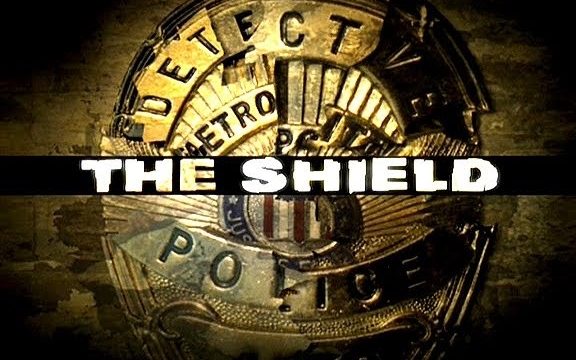“Blowback” sees The Shield’s style nearly fully developed. If you put Clark Johnson’s first three episodes together (the first, third, and fifth episodes), you can see how the camerawork becomes more fluid and less dependent on the traditional wide-master-shot/multiple-closeup model of filming. (The scene in the doctor’s office here is the most traditional.) Brandon Nowalk captured the great little moment of Julien seeing the Strike Team, and the Strike Team not seeing him. (Respect to ZODIAC MOTHERFUCKER and Tim Isola for recognizing this as a pivotal early episode. “Dawg Days” is good enough, and the ending is fantastic, but it’s not on this level.)
“Blowback” also is the first iteration of a recurring Shield plot: cleaning up the mess you make. What’s so important about this is that it marks something really distinct about the morality of this show: how corrupt you are has nothing to do with how smart or how lucky you are. We’ve seen so often the cop who’s corrupt, but HE GETS RESULTS YOU STUPID CHIEF! And, of course, the chief means well but he just can’t do the job. Here, though, being a rogue cop doesn’t make you any smarter, and being the chief doesn’t make you stupid. Actually, being corrupt means you’ve got to deal with a whole buncha shit if the motor pool car gets robbed with two heroin bricks you’re keeping for your favorite dealer, and Kurt Sutter smartly finds all sorts of complications to make for a great hour of television. Being corrupt is something you have to keep working at and it gives you a lot of opportunities for mistakes, which is to say a lot of opportunities for plot.
Great moments in acting: Kimberley McCullough’s instant shift from scared young thing to who-gives-a-fuck thief; Sutter’s mildly stoned, almost graceful execution of the guy at the table. (There’s a little bit of Gary Oldman’s psycho boy from State of Grace in that move.)
Previously: “Our Gang”/”The Spread”
Next: “Cherrypoppers”/”Pay in Pain”

